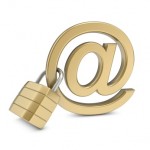Top tips from Mesmo Consultancy (and Associates) on how to save time and improve business and personal performance by ‘Taking Control of your Inbox’ and using proper business email etiquette.
The recent hacking of the Adobe website is a salient reminder of the need to remain vigilant about protecting ones personal information on-line. One of the most stark factors to emerge was the number of very weak passwords used by people. Email security and internet security depends in part of having strong passwords and being vigilant about what you post on social media sites. A recent report revealed that the most common passwords were ‘123456’ (190,000+ users) and ‘123456789’ (46,000+ users).
Creating a strong password is really quite easy. Think of a meaningful sentence and then take the first letter of each word and use it to construct a password. Turn a couple of letters into capitals/symbols and add in a couple of numbers and you have a strong password. For example:
In my youth my favourite singer was Leonard Cohen. A password might be 1mYMf3Wlc!

Email security
Three other top tips to follow to improve your email security are:
1. Password protect important attachments.
2. Do not put confidential information in the body of an email, rather either convey the information verbally or in a password protected attachment. Click here for an example of what can otherwise go wrong.
3. Remember that despite your best efforts email evidence is very rarely destroyed. Someone somewhere will always have a copy.
For those managing a business (no matter what size) a key part of your email and internet security must be your Acceptable (computer) Usage Policy (AUP). It must be up-to-date to take account of changing technologies, and you must have evidence that everyone has read and accepted its conditions.
Click here to access our free on-line tool to benchmark just how robust is your current AUP. Mesmo Consultancy have helped many clients improve their email security and reduce the risk of leaking sensitive and confidential information. Call us now for a free consultation and review about how vulnerable your business is currently (+44 (0)1202 434340) .
Tags: acceptable usage policy, email security, Hacking, Mesmo Consultancy, password protection
Hurray for the Harris Academy who earlier this month decided to ban the use of all slang and text speak in an effort to improve pupil’s English language skills. A person’s lack of command and competence with proper English is rendered naked in an email as many business people have discovered. An email sent on a company address is a business record and as such represents that company’s brand and image. Whilst slang and text speak may be acceptable socially, proper business email etiquette is a pre-requisite to developing good business communications.
How would you feel as a manager and/or business owner if your employees sent emails which do not reflect properly your brand and company values? Yet that is what thousands of people do every day. They write emails in which ‘there way to resolve the challenge is…’. ‘They two will spellcheck their emails…’
Add to that the number of emails which contain text speak which many outside generation X and the Millennials see as a foreign language. Add too those emails which contain smileys and kisses and you start to see the problem. (If you are in the retail sector such emails can be enough to cost you a customer  especially if they customer if a Baby Boomer or from Generation X who are used to properly written communications). Your email is your digital dress code. Sloppy email – sloppy you and your business. Business email etiquette is different to social email etiquette. Business emails need to be need properly structured, grammatically correct and spell-checked. After all it would not be good to ask fellow board members to get their ‘dicks’ lined up!
especially if they customer if a Baby Boomer or from Generation X who are used to properly written communications). Your email is your digital dress code. Sloppy email – sloppy you and your business. Business email etiquette is different to social email etiquette. Business emails need to be need properly structured, grammatically correct and spell-checked. After all it would not be good to ask fellow board members to get their ‘dicks’ lined up!
The ban on text speak and slang by Harris Academy is welcomed, because if we don’t start to educate today’s school children we might as well wave goodbye to English as you and I know it. This would a be a great shame and could be the start of the slippery slope to lower standards of email etiquette and business communications which will mean time wasted as we try to comprehend what is being said.
Use Mesmo Consultancy’s free ‘Email Etiquette Benchmarking tool‘ to check the quality of your emails. If you find they do not support your values and brand then it’s time to take the bull by the horns and educate your workforce before you lose valuable customers. Call me to discuss how we can help you.
Meanwhile, what’s the worst business email etiquette bungle you have ever seen/made?
Tags: business email etiquette, digital dress code, email etiquette, Generation X, Harris Academy
Over the last month I have noticed myself increasingly unable to focus and do any blue sky thinking. Is it age? ‘When I am Sixty Four’ by the Beetles does have a certain resonance with me. Having just won two significant pieces of silver on the golf course, given a couple of major presentations and been recruiting for a new CEO for the Dorset Chamber of Commerce that might not seem likely. Then I checked my email and social networking behavior.

Tortoise approach to email overload
Several articles have caught my attention recently. Two related to the tortoise and hare fable. First was Schumpeter’s ‘In praise of laziness’ and second was Susie Boyt’s ‘Tortoises knows a thing or two’. Both urge us to slow down and know when it’s time to stop and take stock. We are bombarded with emails night and day and the urge to check them every few minutes has created two serious new diseases: email overload and email addiction both of which I have frequently written. Was I now falling victim to one of both of them?
The third article to make me sit up was Emma Jacobs’s ‘Help to get a good night’s sleep’. Checking your emails late at night is know to be disruptive and can result in disturbed sleep patterns. In this recent article by Emma Jacobs she again stresses the need for down time to create a quiet mind which in turns enables us to focus and feel less stressed.
Monitoring my connectivity for 48 hours I realised I had slipped into some appalling and destructive habits:
In short I was suffering from chronic email and information overload which in turn was creating attention deficit. Here is the five point action plan I prescribed myself.

Email overload medicine
In other words become a tortoise more often during the day and take time to look around, smell the roses, and let my mind wander free of clutter and other people’s actions lists. Is the anti-email overload medicine working. Its early days but my mind does seem quieter and gradually I am regaining my ability to blue sky and think outside the box. Next is to re-start practicing mindfulness and review my eating habits.
Tags: email and mindfullness, email and sleep, email overload, email overload medicine, tortoise and email overload

Alan Coote CEO 5Digital
What is email best practice for including video within your campaign can increase click through rates by 300%. If you want to correspond with a company’s senior executives, you had better include a video link as 60% of them prefer receiving video to text. Yet click through only generates traffic. In order to be successful you really need to convert this into sales. That means generating compelling content. Whilst I could write a book on the subject, let’s break it down into three steps which also make for good email etiquette.
In broadcast media it’s standard practice to have a profile of a typical viewer or listener. We give them a name, we know how old they are, where they live, how many kids they have, what car they drive, the newspaper they read and what other programmes they are watching.This is your starting point; it steers the whole production in a single, clear direction informing not only how the video looks and sounds, but also how it’s filmed, edited and presented.
You may think being too specific could lose you business – it won’t. The more specific you are, the greater the clarity of your production.
It doesn’t take long in business to realise that nearly every marketing message your company puts out must have a clearly defined objective. If the aim is to make a sale then everything you do should point the viewer in that direction. If it’s to raise awareness you’ll need a mechanism for measuring that too.
Now we have to determine how we’re going to achieve the final step – the all-important conversion. This is where a significant number of people are lost. Imagine promoting a holiday destination with an enticing video of the hotel. The pool looks inviting and there are lots of happy people saying what a great time they’ve had. The video ends on a call to action to visit the website to book. That’s another hoop, more typing and more effort. To increase conversions include directions in the video to a simple tracking link included in the email. Autoresponders such as Aweber and GetResponse allow you to manage the success of your campaign.
Even with a compelling video, the maxims of email marketing still hold true – a captivating subject header, personalisation, call to action and click through tracking. To find out more on video statistics, watch this:
Alan Coote’s career spans 35 Years in Creative and Digital Media including the BBC, BAE Systems and numerous Independent broadcasters. He is the CEO of 5 Digital and broadcasts weekly on the national business radio programme Let’s Talk Business. Follow him on Twitter @TheAlanCoote
Tags: email best practice, email etiquette
Will you or won’t you? Should you or shouldn’t you … check your emails while you are on leave? These questions remain hot topics judging by recent press coverage. Some feel their bosses and today’s 24/7 way of working means it is required of you as a professional. Others say you can’t really switch off properly and get the benefits of your break if you are constantly on line.
Many of you will be just about to go away or just coming back. So I thought you might like to take a look at the coverage and be reminded of some useful things you can do to minimise email intruding on your vacation and making your return a misery.
Lucy Kellaway in the Financial Times, not surprisingly, dislikes those Out of Office messages saying you are on leave and feels that staying connected is the right image for those who want to survive in today’s full on business world.

Email stress free vacation
My view? – well I believe in disconnecting if possible but being realistic. I would say restrict yourself to logging on once a day but don’t let yourself get dragged back into work detail.
Delegate responsibilities and do some work to cut your inbox before you go as summarised in an article by Darren Slade business editor of the Daily Echo.
With respect to Out of Office message, I agree with Lucy about banal ones. However, setting a professional Out of Office message can help manage sender’s expectations and reduce cyber crime risks.
Whether or not you disconnect or stay connected you will undoubtedly return to a bulging inbox and Timothy Stenovec on Huffington.Com provides five very useful top tips to take back control of your inbox.
Click here for the full article by Tim Stenovec.
For more tips and hints on how to deal with email both on leave and on your return see my recent blog on email security over the vacation and the seven step plan for dealing with the vacation back log.
But this is not just about individuals making the decision to log on or not during the holiday season. Companies need to give clear guidlines about what they expect. Just as you should provide guidelines on what is acceptable email etiquette/style for your business, you should also include what is expected from employees on leave and especially in relation to their Out of Office message.
This is an area where we can and would be delighted to provide advice and guidance on email best practice to ensure you and your most valuable asset (your employees) have stress and email free vacations and minimise the cyber crime risks associated with Out of Office messages.
Have a great holiday.
Tags: email best practice, email free vacation, email on vacation, email overload, email security, out of office message